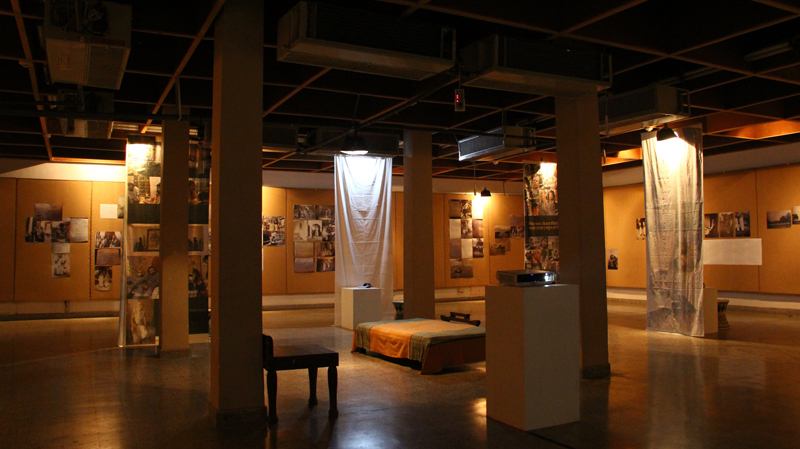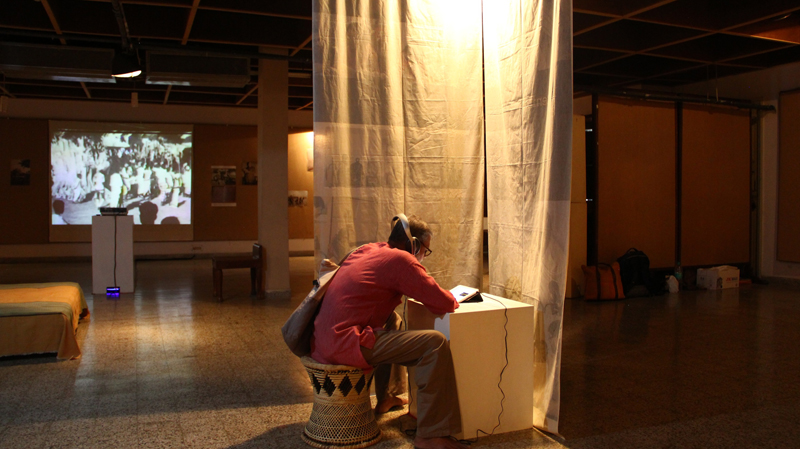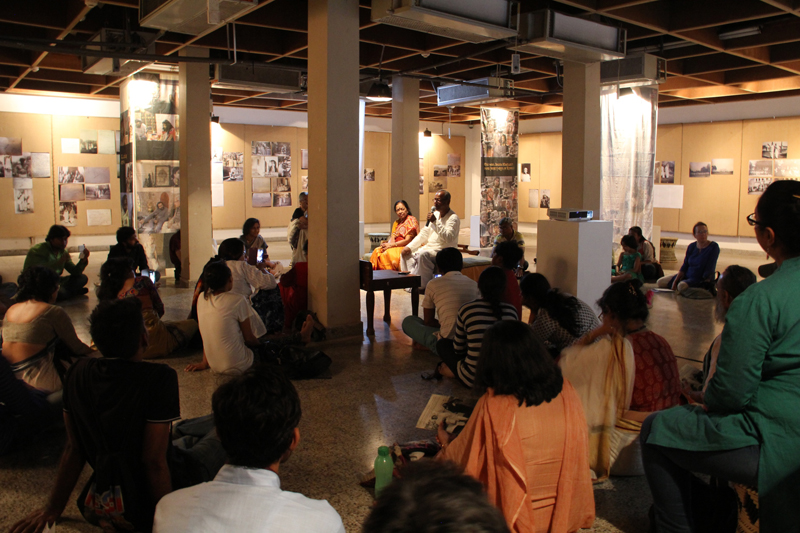Moushumi Bhowmik





Grant Period: Over one year
Moushumi Bhowmik, singer and song-writer, is collaborating with Sukanta Majumdar, sound recordist and sound artist on the research project Travelling with Arnold Bake: Listening to Sounds of History in Archival Recordings for which they have received this fellowship. Moushumi has received grants from IFA earlier, from which The Travelling Archive (www.thetravellingarchive.org) came into being. The Travelling Archive as their website describes it, “is a shared space for listening to field recordings which come out of a journey through the rich and varied music in West Bengal, Bangladesh and Assam”. This is an on-going project of field recordings of songs, and stories about singing and listening. Through these recordings Moushumi and Sukanta introduce listeners to a range of voices, forms and styles, provoking questions about continuity and change; the end of old traditions and the emergence of new ones.
For this fellowship, Moushumi and Sukanta will focus on the sound recordings made by Arnold Bake during his time in Bengal from 1925 to 1934. Arnold Bake, a Dutch ethnomusicologist first came to Shantiniketan in 1925 when he was 26 years old, to study Damodar Pandit's Sangit Darpana, the 17th century Sanskrit treatise on music, for his doctoral research at the University of Utrecht. The period that Bake spent in India and particularly in West Bengal, was a significant period for the country. Rabindranath Tagore’s experimental school Shantiniketan was at the height of its glory and a large number of the country’s intelligentsia were in Calcutta - culturally Bengal was at the centre of things. Bake spent his time in India meeting with artists and singers, recording several of them such as Savitri Krishnan, Gurudayal Malik, Biresvar Chakrabarti and Nabadwip Brajabasi. Blake, being an accomplished singer himself, learned music from Tagore’s nephew Dinendranath Tagore and this association led him to notate Tagore’s songs and publish a book called 26 Songs of Rabindranath Tagore. Moushumi and Sukanta have been working with Bake’s material for a long time now, ever since they started The Travelling Archive. In 2012 they also created an audio-video art installation titled Footsteps of Sound, using Bake's audio recordings, films, private letters and published recordings, for an exhibition on early sound recordings in India titled La Presencia del Sonido, curated by Nida Ghouse and Nuria Querol.
This particular fellowship however, will help them to focus on the sound recordings made by Bake in Bengal. Bake’s sound recordings in South India have been extensively researched but there has been almost no scholarship around his work in Bengal. It is this gap that they hope to fill. In addition to sound recordings, they will also try to retrieve photographs, texts and correspondence that Bake had with writers like Tagore and other contemporaries. For this, they will refer to archives both within the country (ARCE, Gurgaon; Rabindra Bhavan, Shantiniketan, amongst others) and outside the country - the British Library, UK and the library at Leiden, Netherlands (for which they have separate funding). They will then use these ‘found’ materials as signposts for their own sound recordings to trace new paths. For example, Arnold Bake recorded kirtan in a village called Mainadal in Birbhum, West Bengal in 1933. Following from the scant notes that he made about that trip Moushumi and Sukanta were able to trace the family of the Mitra Thakurs, whom Bake had recorded. They also discovered that the Mitra Thakurs had in fact a 500-year-old continuing tradition of singing kirtan. By using Bake’s notes, they hope to meet some of the people whose ancestors Bake had recorded in places such as Mongoldihi in Birbhum, the Santal areas where he recorded music and dance and Naogaon in Rajshahi district of Bangladesh where he recorded the fakirs.
Through this research, they hope to historicise their own practice as field recordists by tracing their lineage to Bake and addressing critical questions related to ‘listening’ to history thus acknowledging sound and image as critical historical source material. They are attempting to construct portraits of people, places and histories of music based on archival material that is both visible and invisible (soundscapes). Their research will feed into a book as also an exhibition in sound, text and image which will travel to different parts of the country. They will thereby also activate not only other archives in India, but also their own Travelling Archive by both adding archival material to it and generating new sound recordings.
